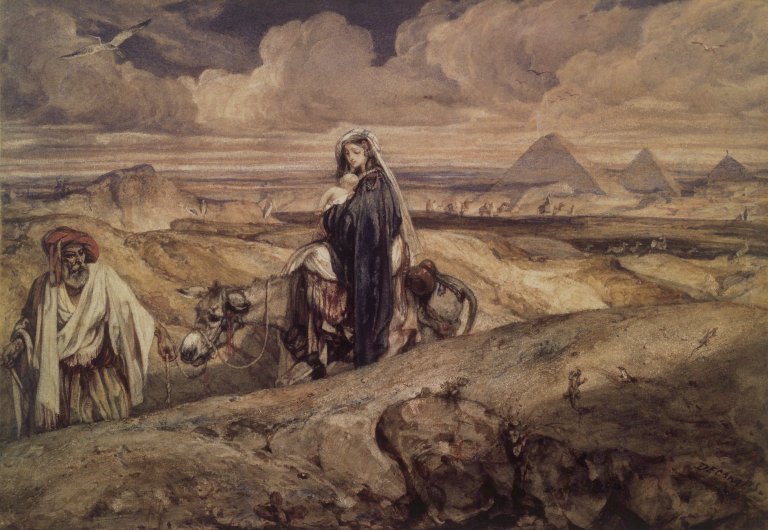As we enter the Advent season, in the Catholic tradition, our liturgy of the word invites us to reflect on readings that prophecy the coming of the Christ, the Messiah. Many of the readings from the Old Testament refer to the Jews’ longing for liberation from imperial oppressors and a return to their homeland. The language is apocalyptic, even revolutionary. Every valley shall be exalted; every mountain and hill laid low. The nations shall tremble.
Because the Jews had endured a series of invasions, exiles, enslavements, and oppressions, their longing for liberation was not merely abstract. It’s easy to downplay, from a place of comfort centuries later, the importance of this longing – to reduce it simply to a metaphor for liberation from sin, without considering the material manifestation of sin in societies and empires.
To be liberated from sin is not above and remote from the desire to be freed from physical slavery, because slavery is the fruit of sin. Liberation from sin means liberation from the oppression of sinful power-structures. So the Messiah they longed for really had to be flesh and blood, the child of humanity. If the Jewish people in occupied Nazareth, under the foreign rule of Caesar Augustus, envisioned the liberator as a military hero, a revolutionary, a second David – one can hardly blame them.
When the disciples first began to follow Jesus, no doubt many of them hoped that he would be a new Davidic figure, a militaristic revolutionary, channeling all that miraculous power into forging a new kingdom. Slowly, though, they began to understand that what they were being offered was something even more radical.
How long did it take for the disciples to understand what Jesus’ ministry really was about – to understand who he really was? Again, we tend towards an overly simplistic retrospective, reading back into the missions of the early church all the layers of doctrine that developed slowly, often painfully, since then. But even if ideas like hypostatic union and transubstantiation were far in the future, the disciples who spread out across the empire, risking torment and death to spread the good news, could not have won the hearts of so many had they not carried with them the real fire of the gospel message.
And they seemed to believe that Jesus would be returning soon.
But Jesus didn’t come back, descending from the heavens the way he’d departed. Persecutions followed, Christianity spread, Christianity became mainstream. Christians turned around and began persecuting others. They began persecuting each other. And at every time of historical upheaval they would ask: is this it? The end? Is this or that tyrant the antichrist?
People Waiting for a Deliverer
What’s fascinating to me is that while Christians swarmed the world and kept waiting for Jesus to return, the Jews who had not followed Jesus remained Jews, and were scattered in a series of diasporas across that same world where Christians were gaining power. When Jews prayed for a deliverer, how often were they praying for a deliverer from the Christians who oppressed them?
Too often, in history, Christians have been on the wrong side. And that is a betrayal of our calling.
I keep thinking, this advent season, that somewhere along the line we forgot something crucial. We keep waiting for Jesus to come back, for the world to end – so we squander the world we have been given. We are so sure that we are the elect, we feel justified in all that we do. Even when we make war over religion, and use violence to weed out any dissent. Even when we look to powerful and dissolute leaders to bring about our ascendancy. And then we dare to smirk at the Jews for not recognizing a Messiah?
We keep looking for the second coming of Jesus, but what if Jesus is here among us already?
“Remember that I will be with you always, even to the end of time.”
“Whatever you do to the least of these, this you do unto me.”
The Second Coming
When will Jesus come again? The Advent season approaches, and Jesus is coming now. Still as helpless as that baby in the stable, still the poor who need to be fed, still the homeless who need shelter, still the naked who need to be clothed. Jesus is on the street corner, huddled in rags. Jesus is in Yemen, starving, fleeing the bombs of the Saudis, our allies. Jesus is in Pakistan, imprisoned unjustly.
Jesus is at our borders, being tear gassed, by the agents of our pro-life Christian government.
Jesus is foreigner, the stranger.
Advent approaches, and Jesus is coming, not in a whirlwind or with an army of banners, not as a conquering hero. He comes as a still small voice, a child, a defenseless human animal among other animals.
Will we recognize him, when he arrives?
image credit: https://commons.wikimedia.org/wiki/File:Brooklyn_Museum_-_The_Flight_into_Egypt_(Fuite_en_%C3%89gypte)_-_Alexandre-Gabriel_Decamps_-_overall.jpg













